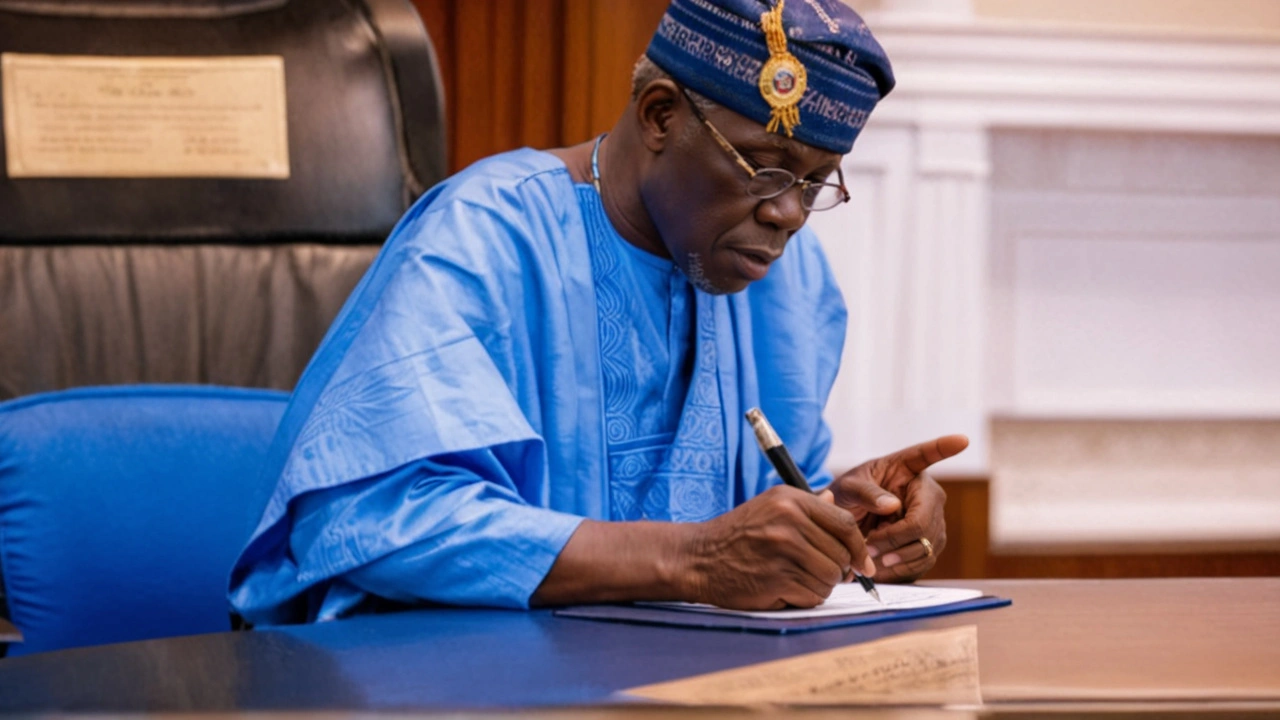President Tinubu Prepares to Submit National Minimum Wage Bill to Congress
President Bola Tinubu is gearing up to submit a pivotal New National Minimum Wage Bill to the National Assembly next week, a move that has been highly anticipated by various stakeholders across the nation. This significant legislative step comes in response to sustained demands from organized labor unions who have long been advocating for an upward revision of the minimum wage. The President's initiative is embedded in his broader strategy to strengthen and reconstruct the Nigerian economy, which has faced numerous challenges in recent times.
The anticipation surrounding the bill is intensifying among workers and labor leaders, who have consistently pushed for a wage hike to keep pace with the rising cost of living and inflationary pressures. The current minimum wage, which has been in place for several years, is increasingly seen as inadequate to meet the basic needs of workers and their families. This has led to frequent discussions, negotiations, and sometimes strikes by labor groups, pressing the government to take action.
Background on the Wage Debate
Organized labor in Nigeria has a long history of advocating for better wages and working conditions. The issue of the minimum wage has been a recurrent theme in labor-government relations, often sparking considerable tension and dialogue. As inflation rates soar and the purchasing power of the average worker erodes, the calls for an upward review of the minimum wage have grown louder and more urgent.
The Nigerian Labour Congress (NLC) and the Trade Union Congress (TUC) have been at the forefront of this agitation, organizing rallies and engaging in dialogue with government officials. Their argument is rooted in the belief that a higher minimum wage will not only improve the living standards of workers but also stimulate economic growth by increasing consumer spending.
Economic Context and Challenges
Nigeria's economy, the largest in Africa, has faced a multiplicity of challenges over the years, including fluctuating oil prices, economic recessions, and more recently, the global impacts of the COVID-19 pandemic. These factors have compounded the economic difficulties, making it imperative for the government to explore various avenues to rejuvenate the economy. President Tinubu’s administration has been working on several economic reforms, aiming to create a more resilient and diversified economy.
The planned submission of the new minimum wage bill aligns with these broader economic objectives. By potentially increasing the minimum wage, the government aims to provide immediate relief to workers, enhance their purchasing power, and consequently drive demand for goods and services, which could have a positive ripple effect on the economy. However, this approach also requires careful consideration of the potential impact on businesses, especially small and medium-sized enterprises (SMEs), which may face increased operational costs.
Political and Social Implications
Politically, the move to revise the minimum wage can be seen as a strategic one for President Tinubu. It positions him as a leader who is responsive to the needs of the citizenry, particularly the working class. This could bolster his administration's reputation and potentially garner mass support. However, it also opens up debates and discussions in the political arena, with different factions having varying viewpoints on how best to balance economic growth with social welfare.
Socially, the adoption of a new minimum wage is expected to have a significant impact on millions of workers and their families. Improved wages could result in better living standards, access to better healthcare, education, and other essential services. It would also have psychological benefits, fostering a sense of fairness and equity among workers, which could lead to increased productivity and job satisfaction.
Challenges and Considerations
While the proposed wage increase is a step in the right direction, it is not devoid of challenges. One of the primary concerns is how the government will fund the wage hike amidst budgetary constraints and competing financial obligations. Additionally, there are fears that increasing the minimum wage could fuel inflation if not managed carefully, negating the intended benefits for workers.
There is also the challenge of enforcement. Ensuring that employers across different sectors adhere to the new wage law requires robust monitoring and regulatory mechanisms. In the past, non-compliance has been an issue, with some employers circumventing wage laws or delaying payments, thus undermining the policy's effectiveness.
The Path Forward
As the nation awaits the submission of the New National Minimum Wage Bill, it is clear that a comprehensive approach is needed to address the intricate dynamics at play. The government will need to engage in extensive consultations with labor groups, businesses, and other stakeholders to craft a policy that is not only fair and just but also economically viable.
President Tinubu's administration must also focus on supplementary measures to support the wage increase, such as enhancing social safety nets, promoting job creation, and investing in education and skills development. These steps will help create a more sustainable economic environment where the benefits of a higher minimum wage can be fully realized.
In conclusion, the upcoming submission of the minimum wage bill marks a critical juncture in Nigeria’s economic policy landscape. It reflects the administration’s commitment to addressing the needs of workers and rebuilding the economy from the ground up. As the country moves forward, the outcomes of this legislative effort will be keenly watched, with the hope that it brings about a more prosperous and equitable future for all Nigerians.
